On this occasion, Vietnam News Agency reporter interviewed Ms. Pauline Tamesis, Resident Coordinator of the United Nations in Vietnam about this important event.
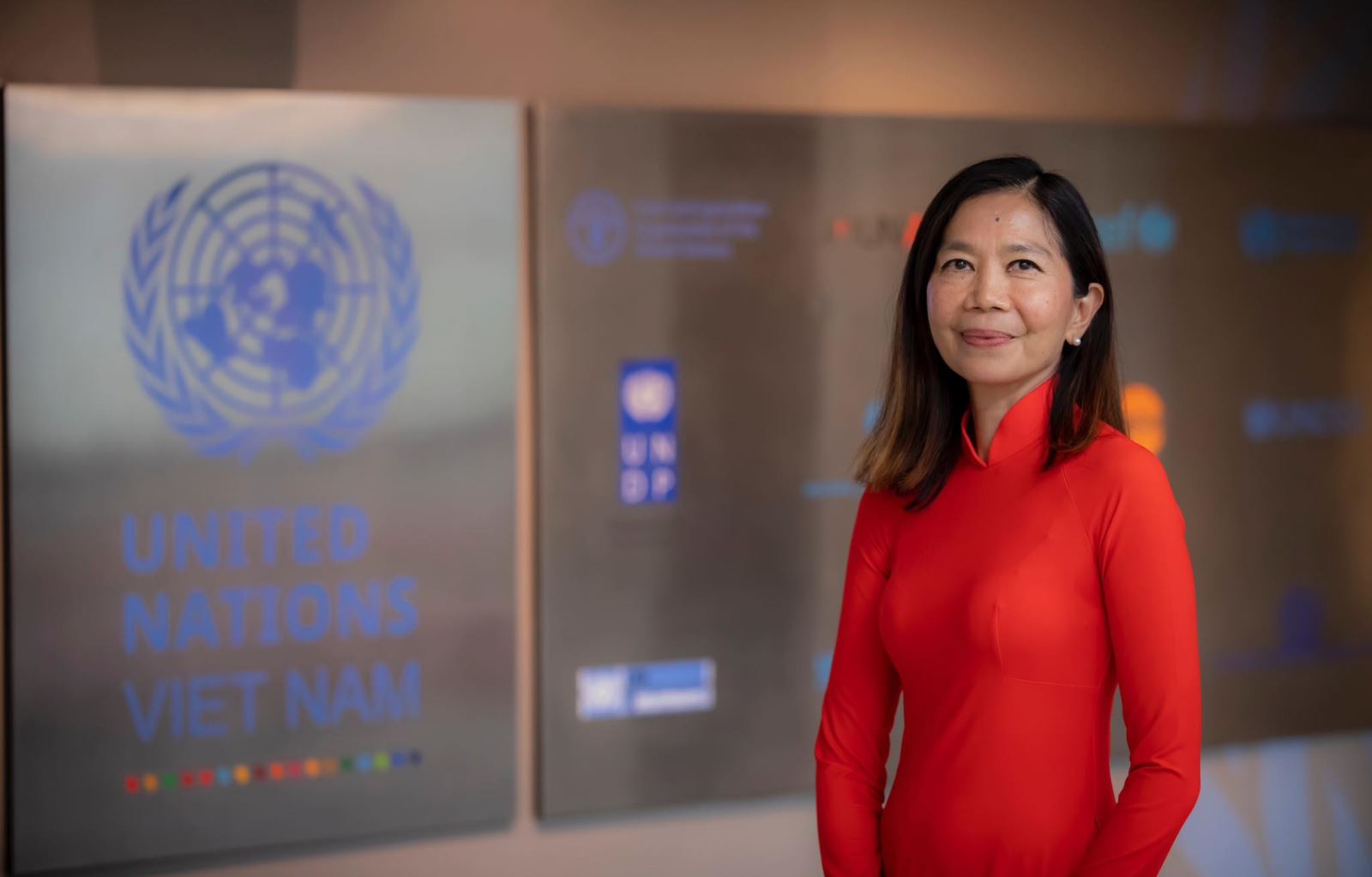
Madam, on October 25, Vietnam will host for the first time the signing ceremony of the United Nations Convention against Cybercrime. How do you assess the significance of this event?
The signing ceremony of the United Nations Convention against Cybercrime in Hanoi (Hanoi Convention) is a historic event. For the first time, a United Nations Convention will be named after a Vietnamese city - a vivid demonstration of Vietnam's growing status in the international arena. This is also the first global legal convention on combating cybercrime adopted within the United Nations framework in more than two decades, demonstrating the success of multilateralism in the current challenging world context. The formation of the Convention stems from the urgent need to respond to the explosion of cybercrime - crimes that cross national borders, go beyond the law and threaten the foundations of digital societies.
The Convention is not just a legal document, but also a blueprint for international cooperation, providing member states with powerful tools to prevent, investigate and prosecute cybercrime. The Convention marks a new era of cooperation between governments , international organizations, businesses and civil society, all with the common goal of ensuring cybersecurity, protecting data and administering justice in the digital age.
In particular, the Convention is closely linked to the Global Digital Compact and the Pact for the Future, initiatives that promote digital safety, human rights and inclusiveness in cyberspace. These documents demonstrate the international community's determination to build an open, safe and sustainable digital future for all.
For Vietnam, hosting this signing ceremony is a brilliant milestone in its 47-year journey of cooperation with the United Nations. This is a proud moment, demonstrating Vietnam’s strong commitment to multilateral diplomacy and the country’s growing role in shaping the future of global governance.
In your opinion, what does the fact that Vietnam was chosen as the host country for this event reflect about Vietnam's prestige and growing role in global issues?
Vietnam’s hosting of this landmark event is a clear demonstration of its leadership, strategic vision and unwavering commitment to multilateralism, with the United Nations at its core. It sends a strong message to the world that Vietnam is not only a responsible member of the international community, but also an emerging country with a leading role in addressing the most pressing challenges of our time.
This honor builds on Vietnam’s proactive and extensive contributions in international forums — from its role at the UN Human Rights Council, to its pioneering role in the Just Energy Transition Partnership (JETP), its ambitious climate commitments under its “Nationally Determined Contributions” (NDCs), to its promotion of the “Women, Peace and Security” Agenda. All of this stems from Vietnam’s strong tradition of diplomacy and international cooperation.
Vietnam’s hosting of the Hanoi Convention is a testament to its capacity to promote dialogue and lead cooperation on issues of global significance. It is a clear signal that Vietnam’s voice is heard, its leadership is appreciated, and its partnership with the United Nations is stronger than ever.
What does the United Nations expect from Vietnam's role in promoting international cooperation on cyber security and high-tech crime prevention, especially in the context of increasingly complex and potentially risky cyberspace?
The United Nations expects all future member states of the Convention, including Vietnam, to fully implement the provisions of the Convention, in harmony with other international agreements such as the "Global Digital Compact". The United Nations expects Vietnam to continue to demonstrate its leading role in international cooperation; to be proactive, to share experiences and to promote innovation in the fight against cybercrime.
Vietnam is entering a new era of development. With bold reforms shaping its digital transformation roadmap, Vietnam is not only adapting to the future but also helping to shape it. Vietnam’s aspiration to become a global pioneer in digital governance is linked to its commitment to building a safe, inclusive and human rights-respecting cyberspace.
The United Nations recognizes Viet Nam as a trusted partner – a country with a long-standing relationship with the United Nations, built on shared values, mutual respect and a shared vision of peace, development and cooperation. In an increasingly complex digital world, the United Nations is confident that Viet Nam will continue to lead by example, promoting cross-border cooperation and defending the principles of justice, security and dignity for all.
Together, we can ensure that the digital world remains a space of opportunity, not vulnerability – a space where innovation is nurtured, human rights are protected, and no one is left behind.
Thanks so much, Pauline Tamesis!
Source: https://baotintuc.vn/thoi-su/le-mo-ky-cong-uoc-ha-noi-la-su-kien-mang-tinh-lich-su-20251024082816123.htm



![[Photo] Prime Minister Pham Minh Chinh and United Nations Secretary-General Antonio Guterres attend the Press Conference of the Hanoi Convention Signing Ceremony](https://vphoto.vietnam.vn/thumb/1200x675/vietnam/resource/IMAGE/2025/10/25/1761391413866_conguoctt-jpg.webp)
![[Photo] National Assembly Chairman Tran Thanh Man receives United Nations Secretary-General Antonio Guterres](https://vphoto.vietnam.vn/thumb/1200x675/vietnam/resource/IMAGE/2025/10/25/1761390815792_ctqh-jpg.webp)


![[Photo] Prime Minister Pham Minh Chinh receives United Nations Secretary-General Antonio Guterres](https://vphoto.vietnam.vn/thumb/1200x675/vietnam/resource/IMAGE/2025/10/25/1761390212729_dsc-1484-jpg.webp)


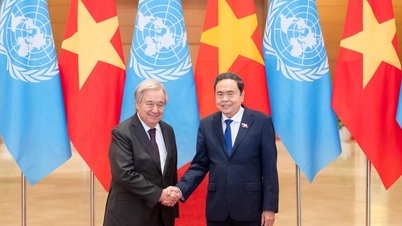

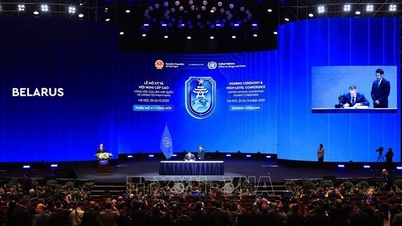
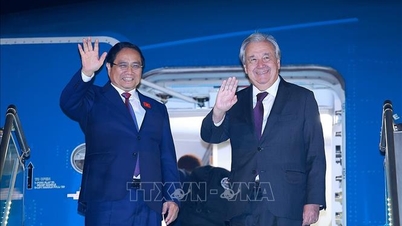
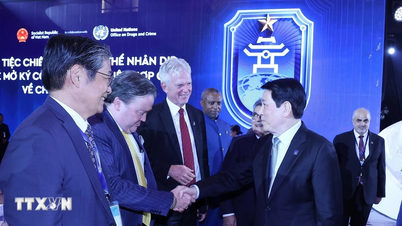
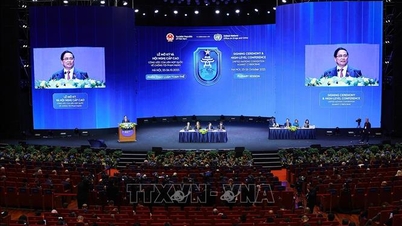
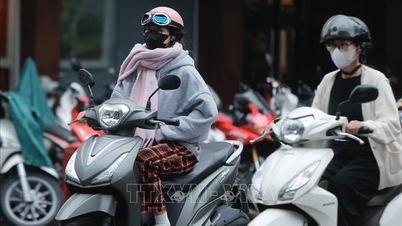
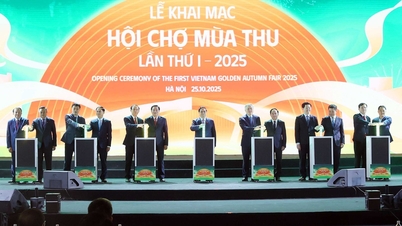
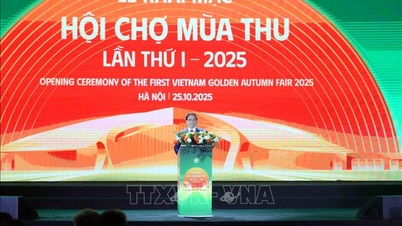
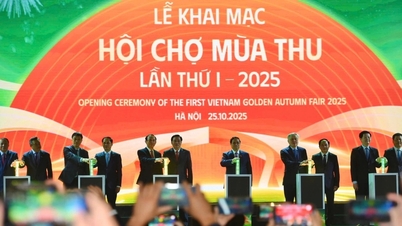

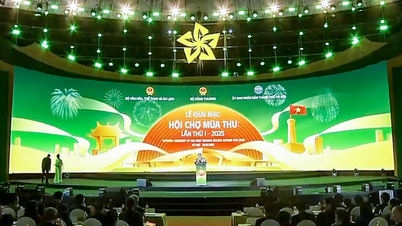







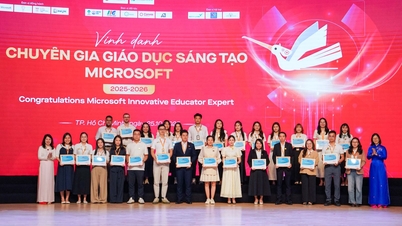


![[Photo] General Secretary To Lam meets with General Secretary and President of Laos Thongloun Sisoulith](https://vphoto.vietnam.vn/thumb/1200x675/vietnam/resource/IMAGE/2025/10/25/1761380913135_a1-bnd-4751-1374-7632-jpg.webp)





































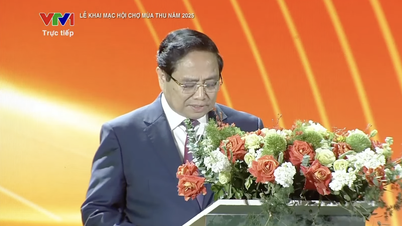




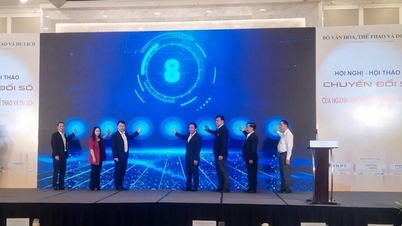

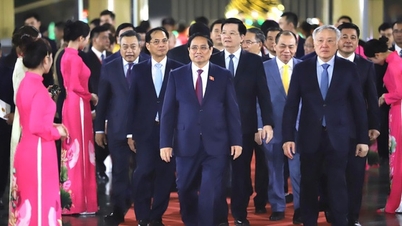
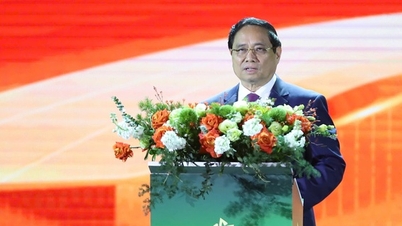
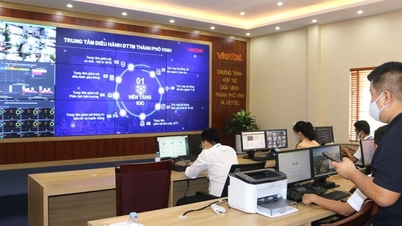

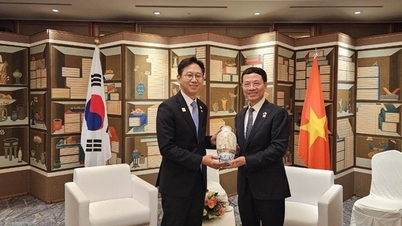
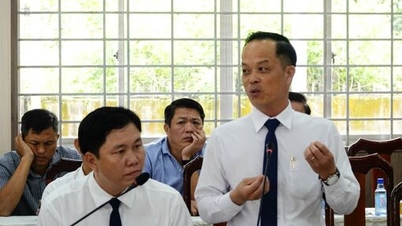



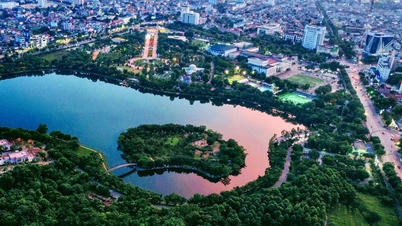

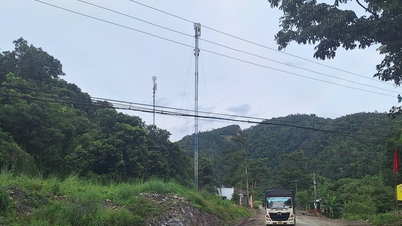
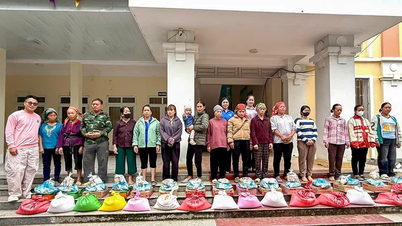














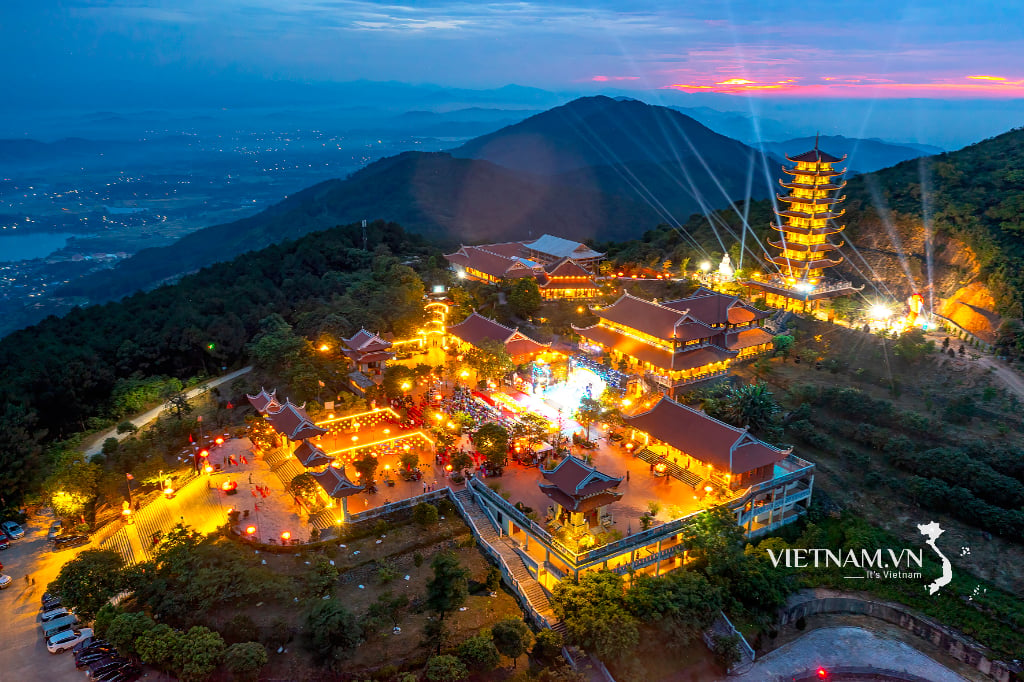

Comment (0)